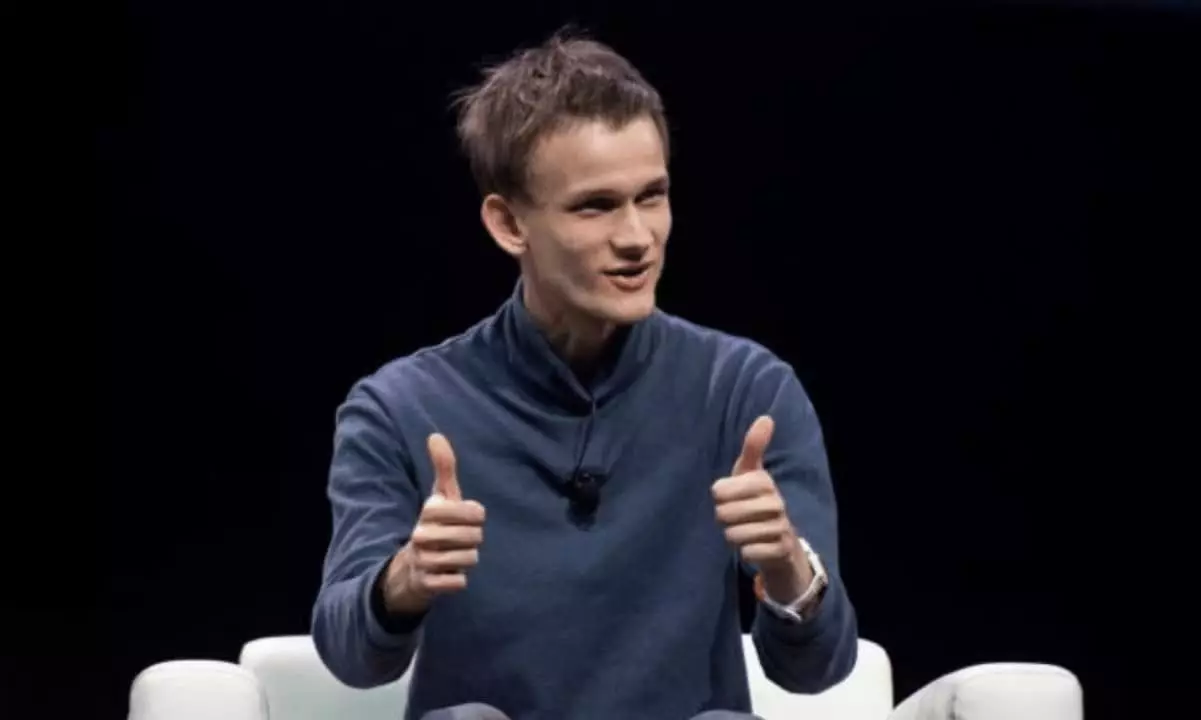Ethereum co-founder Vitalik Buterin recently made headlines by selling a substantial amount of meme coins, totaling 651.6 ETH, equivalent to approximately $1.62 million. This sale aligns with his longstanding commitment to philanthropy, showcasing his dedication to charitable donations within the rapidly evolving landscape of cryptocurrency. Among the tokens included in this transaction were notable quantities of MOODENG, MSTR, and EBULL. Buterin’s actions reflect an intriguing intersection of crypto innovation and altruism, particularly in a market renowned for its volatility and speculative nature.
The sale involved significant amounts of various meme coins, highlighting a growing trend. Buterin sold 10 billion MOODENG for nearly $1 million, alongside other tokens that also demonstrated high dollar value. Over a nine-day span, he amassed an impressive 1,101 ETH from these meme assets, with a commendable portion, 360.16 ETH, directed towards charitable causes. In a recent tweet, Buterin commended meme coins that allocate portions of their supply to charities, indicating a belief that these digital tokens can redefine how philanthropy operates in the crypto space. This assertion mirrors broader conversations around the potential of blockchain technologies to facilitate transparency and direct charitable contributions.
While many applaud Buterin’s contributions, not all in the cryptocurrency sector are convinced. Critics, such as the controversial figure ‘Crypto Rug Muncher’, have raised alarms about the implications of endorsing lesser-known meme coins like EBULL. They argue that such tokens often operate under supply-controlled mechanisms that can mislead unsuspecting investors. The emergence of new wallets that hold a large percentage of EBULL’s supply has further fueled skepticism, suggesting that the project may not be as charitable as it appears. This commentary emphasizes a critical need for vigilance within the crypto community regarding token integrity and the motivations of developers behind these projects.
Despite the current momentum behind meme coins, significant risks loom ahead, according to industry experts. Chris Dixon from Andreessen Horowitz pointed to the ease of creating and trading these tokens as a double-edged sword. While it democratizes entry into the crypto space, it also complicates the landscape for legitimate initiatives looking for sustainable paths forward. Regulatory barriers remain a pressing concern, as the marketplace navigates the rocky terrain of appropriate oversight. Additionally, firms like CoinShares have issued warnings regarding market manipulation and liquidity struggles associated with meme coins, casting doubt on their stability and long-term viability.
Vitalik Buterin’s foray into meme coins is a fascinating study of how emerging technologies can intersect with charitable efforts. His actions spark a dialogue about the role of digital currencies in philanthropy, even as they illustrate the inherent risks ascribed to this volatile segment of the market. As both supporters and skeptics weigh in, the future of meme coins remains uncertain, teetering between the promise of innovation and the perils of speculation.


Leave a Reply